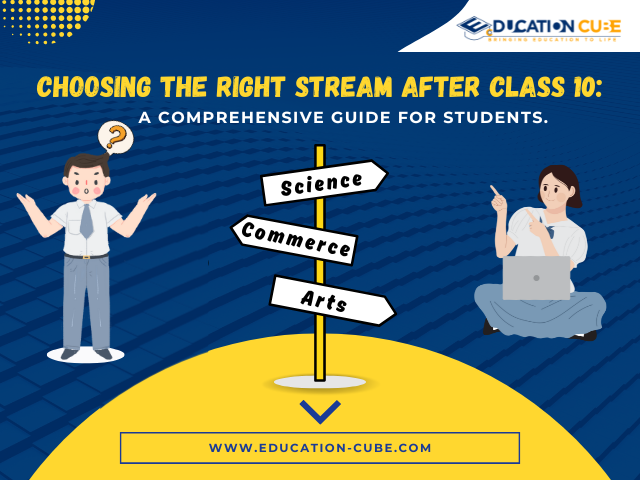
Choosing the Right Stream After Class 10: A Comprehensive Guide for Students
Introduction: Class 10 as a Defining Academic Milestone
Class 10 represents a significant academic milestone, marking the transition from general education to specialized learning. This stage is critical because the subjects chosen after class 10 influence eligibility for higher education programs, shape career pathways, and impact personal development. The importance of selecting the right stream after grade 10 lies in its long-term consequences for academic success and professional fulfilment. For students globally, this decision is not just about immediate studies but about strategically positioning themselves for future opportunities in an increasingly competitive world.
Understanding the Core Subject Streams After Class 10
After completing class 10, students typically select from several primary streams, each designed to develop specific skills and knowledge relevant to different career fields:
- Science Stream: This stream includes Physics, Chemistry, Biology, and Mathematics. It prepares students for careers in engineering, medicine, technology, research, and other STEM fields. Students choosing science often pursue university degrees in engineering, medicine, biotechnology, computer science, or environmental science.
- Commerce/Business Stream: This stream includes Accounting, Economics, Business Studies, and Management. This stream is suited for students interested in finance, entrepreneurship, marketing, and business administration. Commerce stream students commonly advance to degrees in business management, economics, accounting, or finance.
- Humanities/Social Sciences Stream: This stream includes History, Political Science, Sociology, Psychology, and Literature. It caters to students interested in law, education, journalism, public administration, social work, and international relations. Humanities students often pursue degrees in law, social sciences, education, or media studies.
- Creative Arts and Vocational Subjects: This stream offers subjects such as Fine Arts, Music, Design, Information Technology, Hospitality, and other vocational skills. It provides alternative pathways for students with creative talents or those seeking practical, skill-based careers. Students in this stream may pursue careers in graphic design, digital media, culinary arts, information technology (IT), or hospitality management.
Understanding these streams and their associated career options based on stream selection is essential for making a strategic and informed choice.
The Critical Link Between Subject Choice and Career Prospects
The subjects selected after class 10 have a profound impact on a student’s academic and professional future:
- University Eligibility: Most university programs require specific subjects as prerequisites. For example, engineering courses typically require Physics and Mathematics, while medical programs require Biology and Chemistry. Selecting the appropriate subjects ensures eligibility for the desired university courses.
- Career Alignment: Subject choices should align with a student’s career goals. Science subjects open doors to healthcare, engineering, and research; commerce subjects lead to business, finance, and management; humanities prepare students for careers in law, education, and the social sciences.
- Entrance Exam Preparation: Many competitive exams require specific subject knowledge. Aligning subject choices with these requirements is a strategic part of career planning.
Understanding how subject choice affects career prospects enables students to effectively align their academic paths with their ambitions.
Common Pitfalls Students Should Avoid
Many students face challenges that can negatively affect their academic and career trajectories:
- Peer and Parental Pressure: Choosing streams based on others’ expectations rather than personal interest often leads to disengagement and poor performance.
- Following Trends Blindly: Opting for popular streams without considering personal fit can lead to dissatisfaction and academic struggles.
- Ignoring Strengths and Learning Styles: Selecting subjects that don’t align with a student’s aptitudes or interests often leads to frustration and a lack of motivation.
Avoiding these mistakes helps prevent the negative consequences of the wrong stream after class 10, such as academic difficulties and loss of motivation.
A Step-by-Step Approach to Choosing the Right Stream
Making an informed decision requires a structured approach:
- Self-Assessment: Reflect on your interests, strengths, and preferred learning styles. Utilize aptitude and personality tests to gain clarity.
- Career Exploration: Research career fields and understand the educational requirements for your areas of interest.
- Consultation: Discuss your options with teachers, mentors, and professional counsellors who can provide objective guidance.
- Resource Utilization: Use career guidance tools and attend workshops or webinars focused on subject selection.
- Parental Engagement: Involve your parents or guardians in open discussions to ensure support without pressure.
This comprehensive approach ensures you know how to choose the right subjects after class 10, aligned with your goals and strengths.
The Role of Parents and Mentors in Supporting Students
Parents and mentors have a significant influence on subject selection. Their role is most effective when they:
- Provide supportive, non-directive guidance that encourages exploration and self-discovery.
- Foster open communication, allowing students to express their aspirations and concerns freely.
- Encourage independent decision-making, helping students build confidence and ownership of their choices.
Such involvement fosters a nurturing environment that encourages thoughtful and confident decision-making.
Consequences of Choosing the Wrong Stream
Selecting an unsuitable subject stream can lead to:
- Academic Challenges: Lack of interest or aptitude may result in poor grades, frustration, and decreased motivation.
- Reduced Motivation: Disengagement can affect overall well-being and academic performance.
- Stream Switching: Changing streams later is often complex and may delay academic progress.
Recognizing these risks highlights the importance of making well-informed decisions early.
Exploring Non-Traditional and Global Education Paths
Modern education offers diverse pathways beyond traditional streams:
- Creative and Vocational Fields: Design, filmmaking, music, IT, hospitality, and other skill-based courses provide practical career opportunities.
- Alternative Curricula: Programs such as the International Baccalaureate (IB) and A-levels, as well as hybrid learning models, offer flexibility and global recognition.
- Skill-Based Learning: Emphasizing competencies over rote learning, these paths prepare students for evolving global job markets.
Exploring these options broadens your horizons and aligns education with your unique talents and abilities.
Real-Life Success Stories
Numerous students have benefited from strategic subject selection:
- Securing scholarships and admission to prestigious universities.
- Launching successful careers by aligning studies with passions.
- Demonstrating resilience and adaptability by switching streams thoughtfully.
These examples underscore the value of informed decision-making.
How Education-Cube Empowers Your Subject Selection Journey
Navigating subject selection can be daunting, but Education-Cube offers comprehensive support:
- Personalized Counselling: Tailored sessions to understand your unique profile and aspirations.
- Aptitude Testing: Scientifically designed assessments to identify your strengths and suitable streams.
- Career Guidance: Expert advice on academic planning and global education opportunities.
- Parental Engagement: Facilitating collaborative decision-making involving families.
- Resource Access: Extensive databases on universities, courses, and career paths.
- Streamlined Process: User-friendly tools to simplify complex decisions.
Education-Cube equips you with the knowledge and confidence to make strategic subject choices that unlock your full potential.
Conclusion
Subject selection after class 10 is a defining moment that shapes your educational and professional future. It is a strategic decision that requires careful consideration, thorough research, and expert guidance. By understanding the implications of your choices, avoiding common mistakes, and leveraging expert support, such as Education-Cube, you can build a strong foundation for success. Approach this decision thoughtfully, prioritize your interests and strengths, and make informed choices to create a fulfilling and prosperous future.
FAQs
Q1: Why is subject selection after class 10 so important?
A: Choosing the right subjects after class 10 is vital because it determines your eligibility for higher education courses and shapes your future career options. Specific university programs require certain subjects as prerequisites, so selecting the appropriate stream ensures you can pursue your desired academic and professional goals without obstacles.
Q2: Can I switch streams if I realize my initial choice was wrong?
A: While switching streams is possible, it often involves challenges such as catching up on missed subjects and potential delays in academic progress. To avoid these complications, it is best to make informed decisions as early as possible.
Q3: How can I identify the right stream for myself?
A: Identify your strengths and interests through self-assessment, aptitude tests, and career counselling. Seek advice from teachers and mentors to align your subject choices with your long-term aspirations.
Q4: What role do parents and mentors play in this process?
A: Parents and mentors should provide supportive guidance, encourage open dialogue, and help students explore options without imposing their own decisions, thereby fostering confidence and independence.
Q5: Are creative and vocational streams valuable career options?
A: Yes, these streams offer practical skills and growing career opportunities in fields like design, IT, hospitality, and the arts, making them excellent choices for many students.
Q6: How does Education-Cube assist students with subject selection?
A: Education-Cube offers personalized counselling, aptitude assessments, career guidance, and parental involvement to help students make informed, confident subject selections aligned with their goals.
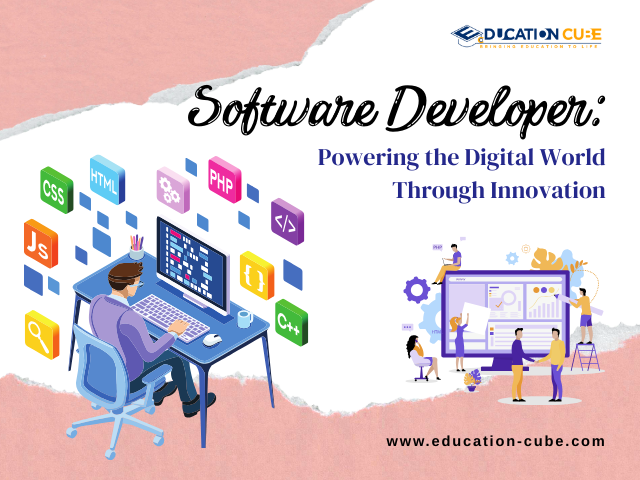 Software Developer: Powering the Digital World Through Innovation
Software Developer: Powering the Digital World Through Innovation
 Global Pharmacy Programs: Elevate Your Career with World-Class Education and Practical Exposure
Global Pharmacy Programs: Elevate Your Career with World-Class Education and Practical Exposure
 Artificial Intelligence (AI) and Machine Learning (ML) Careers: Building the Future of Innovation
Artificial Intelligence (AI) and Machine Learning (ML) Careers: Building the Future of Innovation
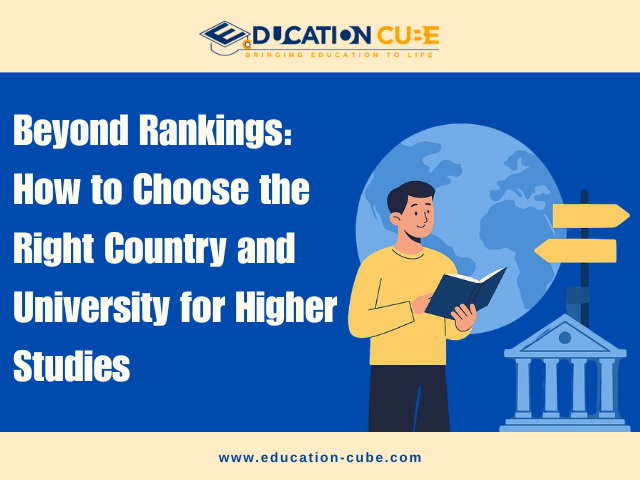 Beyond Rankings: How to Choose the Right Country and University for Higher Studies
Beyond Rankings: How to Choose the Right Country and University for Higher Studies
 Study Cloud Computing Abroad: Destinations, Courses, Careers & Trends for 2025
Study Cloud Computing Abroad: Destinations, Courses, Careers & Trends for 2025
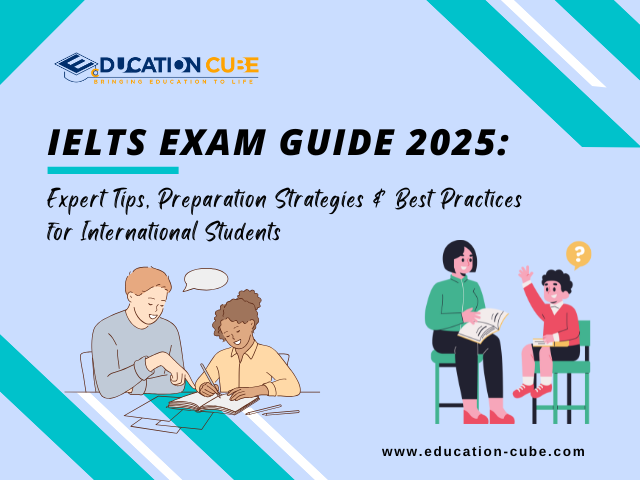 IELTS Exam Guide 2025: Expert Tips, Preparation Strategies & Best Practices for International Students
IELTS Exam Guide 2025: Expert Tips, Preparation Strategies & Best Practices for International Students
 A Comprehensive Guide to Writing a Letter of Intent for Higher Education
A Comprehensive Guide to Writing a Letter of Intent for Higher Education
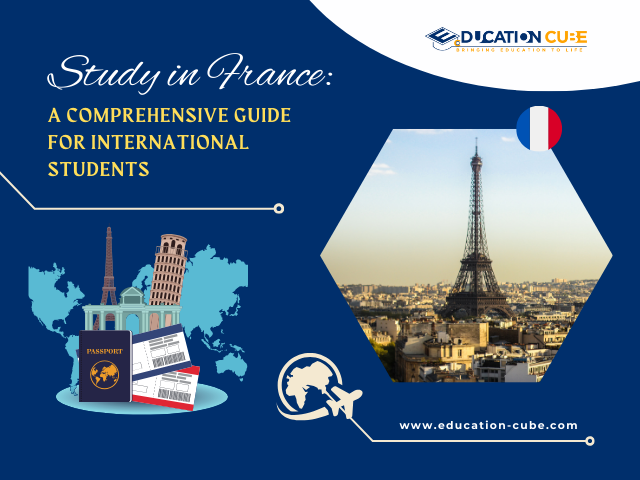 Study in France: A Comprehensive Guide for International Students
Study in France: A Comprehensive Guide for International Students
 International Relations & Political Science: Studying Global Affairs Abroad
International Relations & Political Science: Studying Global Affairs Abroad
00 Comments
Leave a Comment